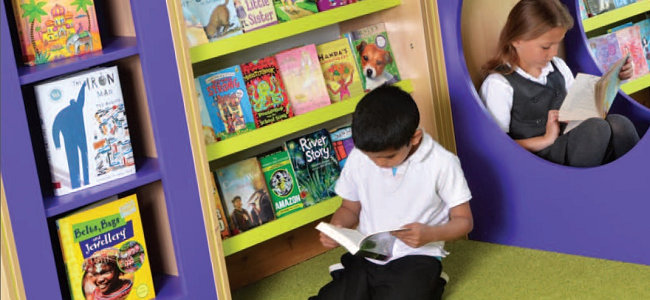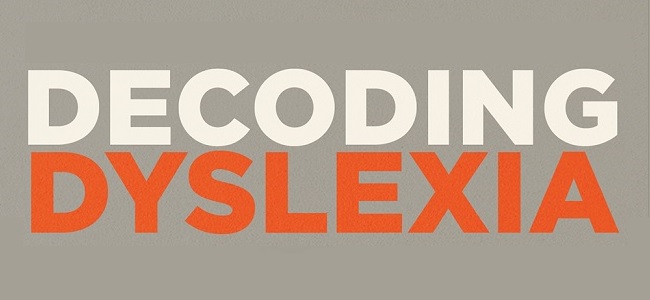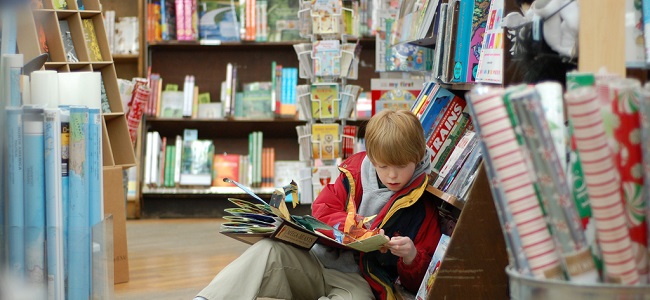A good environment for reading is probably just as important as the book itself. Jane Jackson, marketing manager at BookSpace, shares her top tips on how to create the ultimate reading-zone.

Creating a school reading culture is high up on most headteachers’ wish lists. But presenting reading as an attractive offer isn’t always that easy. While most young people find electronic media instantly attractive so motivation is not an issue, we have to work much harder to make books appealing.

An infographic to explain dyslexia, how it affects people, and what’s being done to combat these effects:
We know that it’s important to get kids reading, but how can we best go about this? Dan Graham, editorial director at Loved By Kids, discusses what makes pupils want to pick up books and immersive themselves in a world of possibilities.

I can still vaguely recall the immense sense of achievement that I derived from being told that I could move on from word cards and could start the school reading scheme. However, excitement soon turned to dismay as my five year-old self realised that years of reading prescriptive and extremely dull books were ahead. The Department for Education's 2012 report 'Research Evidence on Reading for Pleasure' revealed that reading for pleasure is the most important indicator for the future success of the child. Therefore, it seems strange that many school-led forays into our wonderfully rich and diverse world of literature are sometimes so uninspiring.
It has been quite a time since I started to use CSI (Crime Scene Investigation) as a hook to engage students into a range of key (and often for them, boring) subjects. For me it was Science and ICT (Information Communication Technology), but it can be used to develop literacy and numeracy skills, as well as those soft skills such as collaboration and problem solving that can be difficult to plan into busy timetables.
One of the most common questions put to me when I do training on facilitating dialogues with teachers, especially when they’re secondary school teachers, is: “All this dialogue stuff is great, but how can we transfer all this on to the page?”, or words to that effect. I think the answer lies in the question itself: to transfer the fruits of dialoguing onto the page. But how?
Chances are, you’ve read, listened to or seen a version of A Hitchhiker’s Guide to the Galaxy. Here, teacher and author Lisa Jane Ashes applies themes and characters from Douglas Adams’ sci fi classic to look at how teachers can best create great questions.

Why 42? Douglas Adams’ classic The Hitchhiker's Guide to the Galaxy is a great demonstration of how questioning can open up the imagination. Adams questioned everything we believe and a masterpiece of creativity was born. What if mice were more intelligent than men? What if the planet was created by technicians in a large factory? Underestimated dolphins, falling whales, improbability drives and the search for the ultimate answer to life, the universe and everything; this story is creativity at its maddest and best.
Secondary and primary teachers across Wales have been faced with the challenge of embedding the Literacy and Numeracy Framework (LNF) into their whole school curriculums. Ambitious in scope, the LNF is a planning and assessment tool that maps key literacy and numeracy statements from the start of KS2 through to the end of KS3. Pupils will be assessed against the framework, as well as sitting annual national reading, numerical reasoning and numerical procedural tests every May.
For the last fourteen years I have taught English to secondary-aged pupils at a Pupil Referral Unit in the Midlands. Many of these students are vulnerable and complex, some are in care, and a large number have severe behavioural difficulties. All of this means that we must be especially cautious when choosing a location for school trip. Notwithstanding the risks, last summer I made the decision to take a KS3 group to visit Shakespeare’s birthplace, in Stratford-upon-Avon.
What can bespoke quizzes offer the classroom? School librarian and trained quiz writer Kate Barton discusses how best to go about creating these activities for your classroom.

For over six years I’ve used an educational software program which quizzes school students on books they have read. The quizzes are designed to measure to what extent readers have understood the books, and ensure that their choices are both enjoyable and suitably challenging for them.

A community-driven platform for showcasing the latest innovations and voices in schools
Pioneer House
North Road
Ellesmere Port
CH65 1AD
United Kingdom